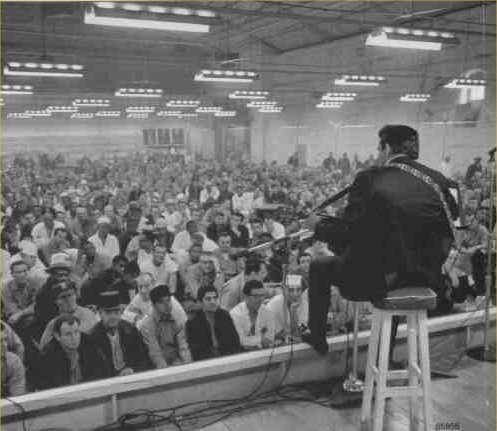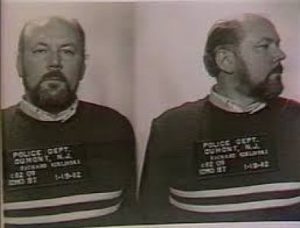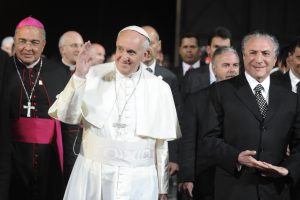“Hello, I’m Johnny Cash.” These famous words once echoed within the walls of a prison that earned its fame through a song. The performance, though, was much more that just a set of lyrics or a nice tune. On January 13, 1968 at the beginning of what would become a tumultuous year, Johnny Cash, June Carter, Carl Perkins and the Tennessee Three performed two shows at Folsom Prison in California. These performances would forever change the landscape of music, reaching Time Magazine’s 100 top albums of all-time in 2006, while also raising awareness for prison reform by putting it into the spotlight.1
Before this performance, Johnny Cash and his health were in a downward spiral. His song “Folsom Prison Blues” was inspired by the film “Inside the Walls of Folsom Prison” in which he saw himself as a prisoner at Folsom. This song caused many of the inmates and people around the United States to believe that he was once incarcerated at Folsom Prison. This was not true, although Mr. Cash had spent a few nights in other jails for drunk and disorderly conduct and possession of drugs. This led many to believe that because of this, Cash’s music and performances resonated with deeply with prisoners.2
The Civil Rights Movement brought attention to prison reform, and Cash’s home state of Arkansas was one of the worst offenders of these kinds of abuses. Their ineffective treatment and rehabilitation of their inmates, along with poor living conditions made him empathize with the men. He decided to use his social and celebrity status he decided to spark a change.His dependence on drugs at the time made Columbia Records unwilling to record a live performance at the prison. But in 1967 both Cash and Columbia Records underwent major changes, and when Bob Johnston was put in charge of Cash’s musical performances, Folsom Prison was a go.3

The performance was set for January 13, 1968, so the band and Cash’s father arrived three days earlier to rehearse the carefully crafted lineup of songs. While at El Rancho Motel in Sacramento, California, the Governor of California Ronald Reagan, who was there for an after-dinner speech, visited the band and offered his words of encouragement.4 The night before the performance, Cash stayed up late rehearsing a song written by inmate Glenn Shirley called “Greystone Chapel,” which was about finding God in the chapel at Folsom Prison. Moved by the lyrics “Inside the walls of prison my body may be/But the Lord has set my soul free.” Mr. Cash vowed to play the song the next day. 5
On the morning of January 13, Mr. Cash met with Los Angeles Times writer Robert Hilburn (who later wrote the biography Johnny Cash: The Life) and photographer Jim Marshall at Folsom Prison where things were tense. A guard had recently been taken hostage, and so the inmates were told not to stand during the show. Armed guards carefully watching the crowd from above, but apart from all the chaos stood a calm man dressed in all black. When he took the stage for his first performance out of two that day, the inmates were told not to cheer until he had introduced himself, and they listened. His first song on the list, Folsom Prison Blues, sent the crowd into an uproar and the entire event was a huge success.6

Four months after the performance, the album At Folsom Prison was released. More importantly was the success that came with it, which allowed Cash to speak more about the reform needed in prisons. “He thought the prison system was broken, it wasn’t fixing anybody,” said Mark Stielper, a friend of Cash’s and the family’s designated historian. “The population was mixed, kids and killers. This was his thing; he was really bothered by that.”7 With no other celebrity making society aware of those issues at the time Mr. Cash brought major spotlight, and as a result he was invited by Senator William E. Brock III (R-Tenn.) in July 1972 to testify before the Senate Judiciary Committee’s subcommittee on national penitentiaries. During the same visit Cash met with President Richard M. Nixon in the Oval Office to further discuss the issue. After these important meetings he continued to perform at other prisons, Mr. Cash also spoke about the issue at concerts and on his TV program, and would also visit inmates at his home in Tennessee to play cards and socialize with them. 8
On top of all the musical success was a nation who did not support the cause of prison form enough, and so no traction was really gained from Cash’s advocacy. The performance though, left a lasting effect on country music and solidified Johnny Cash as someone who stood up for those who are often misunderstood and needed help, mirroring his own personal life in a special way.
“So my intuitive take on the time around Folsom is paradoxical, given what the subject matter was: It was the moment that he came into the light. It’s a paradox, but it’s true. When I think about my dad’s life and I think about that moment, that’s when there’s a kind of force, when he embodied who he really was. And that’s light, no matter how much darkness is in it.”
-Rosanne Cash, daughter of Johnny Cash.9
Video interviews made by Northern Light. | Courtesy of YouTube
- Wikipedia, 2018, s.v. “At Folsom Prison,” https://en.wikipedia.org/wiki/At_Folsom_Prison. ↵
- Allison Stewart, “At Folsom prison, Johnny Cash found his cause,” The Washington Post, May 29, 2018, Accessed September 7, 2018, https://www.washingtonpost.com/national/at-folsom-prison-johnny-cash-found-his-cause/2018/05/28/740124ca-4f03-11e8-84a0-458a1aa9ac0a_story.html?noredirect=on&utm_term=.1974f5815d36. ↵
- Colin Woodward, “The Arkansas prison scandal,” March 22, 2018, https://www.arktimes.com/arkansas/the-arkansas-prison-scandal/Content?oid=15957051. ↵
- The Encyclopedia of World Biography, 2nd ed., vol. 3, 2004, s.v. “Johnny Cash,” 353-355. ↵
- Allison Stewart, “At Folsom prison, Johnny Cash found his cause,” The Washington Post, May 29, 2018, Accessed September 7, 2018. ↵
- Robert Hilburn, Johnny Cash: The Life (New York: Little, Brown, and Company, 2013) 325-327. ↵
- Danny Robins, “Johnny Cash and his prison reform campaign,” BBC World Service, Arkansas, January 23, 2013, https://www.bbc.com/news/magazine-21084323. ↵
- Allison Stewart, “At Folsom prison, Johnny Cash found his cause,” The Washington Post, May 29, 2018, Accessed September 7, 2018. ↵
- Michael Streissguth, Johnny Cash’s ‘At Folsom Prison’: Rosanne Cash Recalls Iconic Live Album, January 12, 2018, https://www.rollingstone.com/music/music-country/johnny-cashs-at-folsom-prison-rosanne-cash-recalls-iconic-live-album-204100/. ↵



67 comments
Alexandra Lopez
I am a fan of Johnny Cash’s music and I have heard about this famous performance that brought awareness of the mistreatment of prisoners. This article was well written and showed that Johnny Cash used his status in society to help those that are considered below him. I believe that if you have certain advantages that not many have or have a voice people listen to then you should use these tools to help those around you. (reposted)
Gabrien Gregory
As a big Johnny Cash fan, I enjoyed reading this article. Cash is definitely one of the most influential Americans in music history. I appreciate the author choosing Cash’s performace at Folsom Prison as their topic instead of just his biography. I wish the author had written more about his upbringing, which was an influence on his fight for second chances. He lost his brother at a young age and was always empathetic of others as a result. The author researched the story well and the success thereof.
Arieana Martinez
I first heard of Johnny Cash’s performance at Folsom Prison when I saw the movie “Walk The Line” and reenacted his performance. Truthfully, I thought it was one of the most powerful scenes in the movie. Johnny Cash was unafraid and used his stardom to make a change. He knew that by performing in the prison, he could invoke change and make people realize the horrible conditions that the people in Folsom Prison had to endure. Johnny Cash helped bring about change, while giving the people in prison hope during times of despair. I loved this article and the message it portrays.
Crystal Baeza
This was a great article and showed a side most people didn’t see from Johnny Cash. Many knew only of his drug abuse and violent acts. I would have to agree on the title of the article, his visit to the Folsom Prison was much more than a performance. That’s when views were changed about Cash and showcasing his music and well as changing environment of prisons across the country.
Donte Joseph
I had very little knowledge of Johnny Cash and what he has done in time, but after reading this well written article, not only have I learned more about Johnny Cash, I have gained a new-found respect for him. I absolutely love when artists use their power to address issues that others may not be talking about, and the fact that Johnny Cage did just that is amazing to me. Johnny Cash saw that there were things wrong with prisons, and instead of complaining about it, he went out and did something.
Nathalie Herrera
Very well written! Although Johnny Cash struggled at first to perform in the Folsom Prison, I am glad that he did in efforts to speak against the harsh prison conditions. Unlike many other celebrities, Cash used his social status for the betterment of others rather than himself. Nonetheless, this article was very informative and the overall message of the article is motivating.
Ysenia Rodriguez
Great article. It really placed the spotlight on the history of one of Johnny Cash’s biggest hits as well as showing the work he performed in order to fight for the betterment of prisons. It is a shame no one supported Cash’s efforts, however this song allowed many opportunities to open up for Cash. Also, thank you for clearing the misconception that Johnny Cash had spent time as a prisoner in Folsom Prison early in the article.
Avery Looney
This article was a great read! Johnny Cash used his social status to bring the issues with prisons into light. His performance inside the Folsom prison was a great way to bring attention to his performance and the ultimate cause behind it. I think that using your platform as a celebrity to bring attention to political issues is a great idea and it is seen more often now.
Valeria Perez
Though I had heard some of Johnny Cash’s songs in the past I didn’t not know he was so involved and passionate about changing prison reforms. His cause still resonates today as we still need to change our current prison system to actually rehabilitate inmates and not just put them in cells. I admire his perseverance for the cause and how even though it was an unpopular opinion he kept fighting for it.
Alexandria Zapata
Johnny Cash is another artist that has made an amazing contribution to the music industry, although I didn’t know that he performed at a prison. His album spoke about the prison system and how nobody was fixing it, and it wasn’t helping anyone. He spend his free time at prisons, playing cards with the inmates and socializing with them. I think that some musicians use their platform to talk about something that the media won’t talk about and I think that this is one example of something that the world needs to hear about.